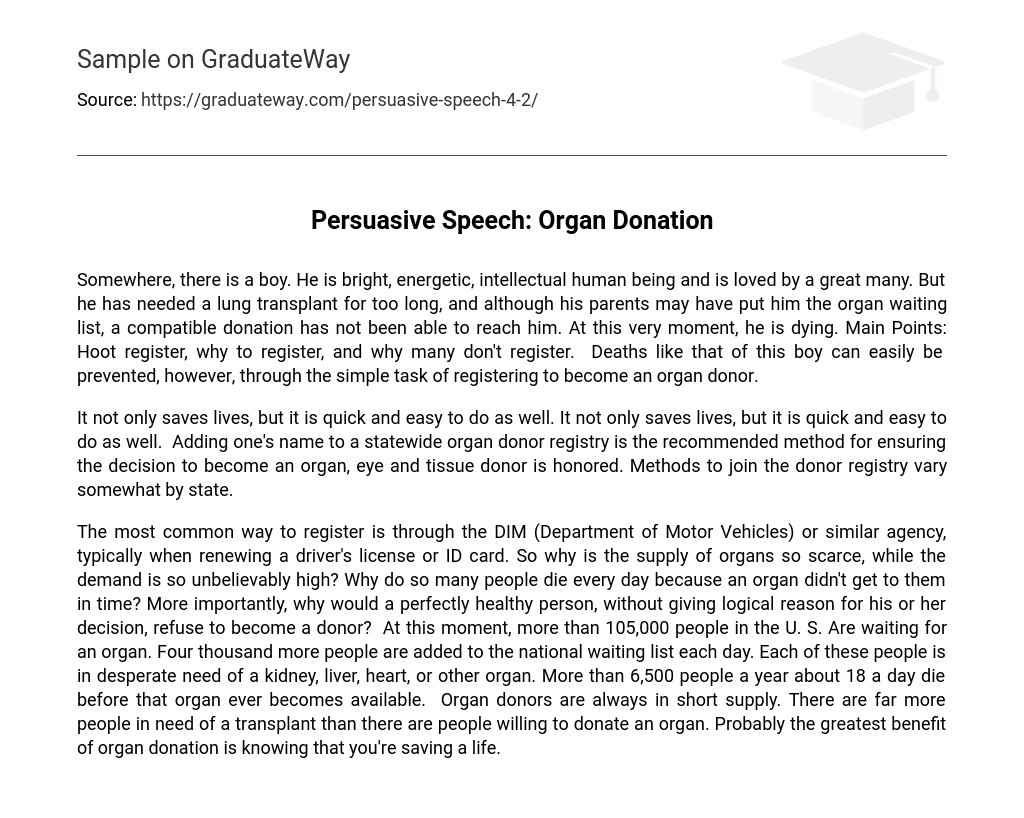Somewhere, there is a boy. He is bright, energetic, intellectual human being and is loved by a great many. But he has needed a lung transplant for too long, and although his parents may have put him the organ waiting list, a compatible donation has not been able to reach him. At this very moment, he is dying. Main Points: Hoot register, why to register, and why many don’t register. Deaths like that of this boy can easily be prevented, however, through the simple task of registering to become an organ donor.
It not only saves lives, but it is quick and easy to do as well. It not only saves lives, but it is quick and easy to do as well. Adding one’s name to a statewide organ donor registry is the recommended method for ensuring the decision to become an organ, eye and tissue donor is honored. Methods to join the donor registry vary somewhat by state.
The most common way to register is through the DIM (Department of Motor Vehicles) or similar agency, typically when renewing a driver’s license or ID card. So why is the supply of organs so scarce, while the demand is so unbelievably high? Why do so many people die every day because an organ didn’t get to them in time? More importantly, why would a perfectly healthy person, without giving logical reason for his or her decision, refuse to become a donor? At this moment, more than 105,000 people in the U. S. Are waiting for an organ. Four thousand more people are added to the national waiting list each day. Each of these people is in desperate need of a kidney, liver, heart, or other organ. More than 6,500 people a year about 18 a day die before that organ ever becomes available. Organ donors are always in short supply. There are far more people in need of a transplant than there are people willing to donate an organ. Probably the greatest benefit of organ donation is knowing that you’re saving a life.





